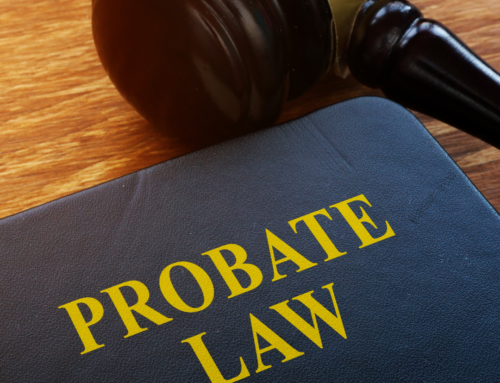When real property changes hands, California imposes two separate taxes – the annual real property tax and a documentary transfer tax. The annual real property tax is reassessed to fair market value when a property changes ownership. The transfer tax allows a county or city, or both, to charge a tax when real property is sold by the transfer, grant, assignment, or other conveyance of a deed, instrument or writing for more than $100. In 926 North Ardmore Avenue, LLC v. County of Los Angeles, 229 Cal. App. 4th 1335 (Cal. Sup. Ct. June 29, 2017), the California Supreme Court affirmed a lower court ruling allowing counties and cities to apply the “change in ownership” rules under Revenue & Tax Code (RTC)§ 64 to impose a transfer tax whenever there is a qualifying transfer of an interest in a legal entity. In Ardmore, a husband and wife purchased an apartment building and transferred title to their family trust. The family trust became the legal owner of the property, but maintained it for the benefit of the husband and wife—meaning that they maintained the beneficial interest in the property. After the husband passed away, the assets of the family trust were transferred to a trust for the wife’s benefit and her two children were appointed as the successor trustees. The children then made a series of asset transfers including transferring the property’s legal ownership to an LLC and then placing the LLC’s membership interests into an LP. The transfers did not trigger a change of ownership and no transfer tax was due, however, because the ultimate beneficiary of the entities was still the mother through her sub-trusts. But, the children/trustees did not stop there. After the initial transfers were made, the children had certain of their mother’s sub-trusts transfer their majority ownership in the LP (which held the membership interests in the LLC that owned the property) to two newly created trusts in which the children were beneficiaries. In return, the children’s trusts each issued promissory notes to the sub-trusts for the LP interests. The transfers were not done through a recorded deed or other writing that expressly referenced the property, but the LLC was required to file a statement of the transfers with the Board of Equalization.[2] Based on this statement, the LA County Assessor determined that there was a change in ownership and reassessed the property issuing a supplemental tax bill to collect additional property taxes.[3] When the Assessor also issued a bill for the transfer tax, the children sued, arguing that the transfer tax was a levy on written instruments that transfer ownership of real property, not on written instruments that transfer legal entity interests. The Ardmore Court held that “a written instrument conveying an interest in a legal entity that owns real property may be taxable, even if the instrument does not directly reference the real property and is not recorded.” The Court further held that the change in ownership provisions under California law, specifically RTC § 64(c) and (d), are applicable and “provide rules for distinguishing ‘true’ changes in ownership’ from ‘paper’ ones’” and “identify a subset of beneficial interest transfers that are significant enough to approximate new ownership” that are the types of indirect real property transfers the transfer tax was designed for. In this case, there was therefore a clear sale and transfer of the property: (1) there were written instruments showing the transfer of beneficial ownership of the property; and (2) the children’s trusts issued promissory notes to their mother’s trusts as payment and consideration for the sale. The Ardmore ruling may now apply whenever there is a transfer of ownership in a legal entity that holds title to California real property, especially if the transfer also requires a filing with the Board of Equalization (or now the Department of Tax and Fee Administration). Even if a deed is not recorded, the city or county may still be able to assess a documentary transfer tax. Also, before a transfer is made, it is important to evaluate whether the city or county has its own transfer tax law requiring a “recorded” instrument that may apply and whether there is a distinction between owned or leased property. This Advisor is one of a series of business, real estate, employment and tax advisories prepared by the attorneys at Buynak, Fauver, Archbald & Spray, LLP. This Advisor is not exhaustive, nor is it legal advice. You should discuss your particular situation with us or with your own attorney. Our legal representation is only undertaken through a written engagement letter and not by the distribution of this Advisor. Stacie D. Nyborg Estate and Tax Attorney SNyborg@BFASLaw.com (Direct) 805.966.7511 www.BFASLaw.com [1] RTC § 11911 [2] When there is a change in control of a legal entity under section 64, subdivision (c) or (d), the person or entity acquiring control, or the legal entity itself, must file a statement with the Board of Equalization listing all counties in which the legal entity owns real property. (§§ 480.1, subd. (a), 480.2, subd. (a).) [3] The general rule that a change of an interest in a legal entity does not result in a change of ownership in the entity’s real property has two major exceptions. The applicable exception in this case is that a change in ownership occurred because: (1) the property was previously transferred to an entity, but that transfer was deemed not to be a change in ownership under RTC §62 (a), and (2) shares or interests representing more than 50% of the total interests in that entity were later “transferred by any of the original coowners in one or more transactions.” (RTC§ 64(d))
Redefining a Sale for California Real Property Transfer Tax
[1] The key to this definition is that there must be a sale of real property that is recognized by a transfer through a deed, instrument, or writing. In a recent decision, the California Supreme Court clarified that transfers of interests in entities that own real property may be subject to both transfer tax and a reassessment for property tax purposes, even if only ownership of the legal entity holding title changes and not title to the underlying real property itself. This decision is relevant for those with real property in trusts, limited partnerships (LPs), limited liability companies (LLCs) and other entities.





